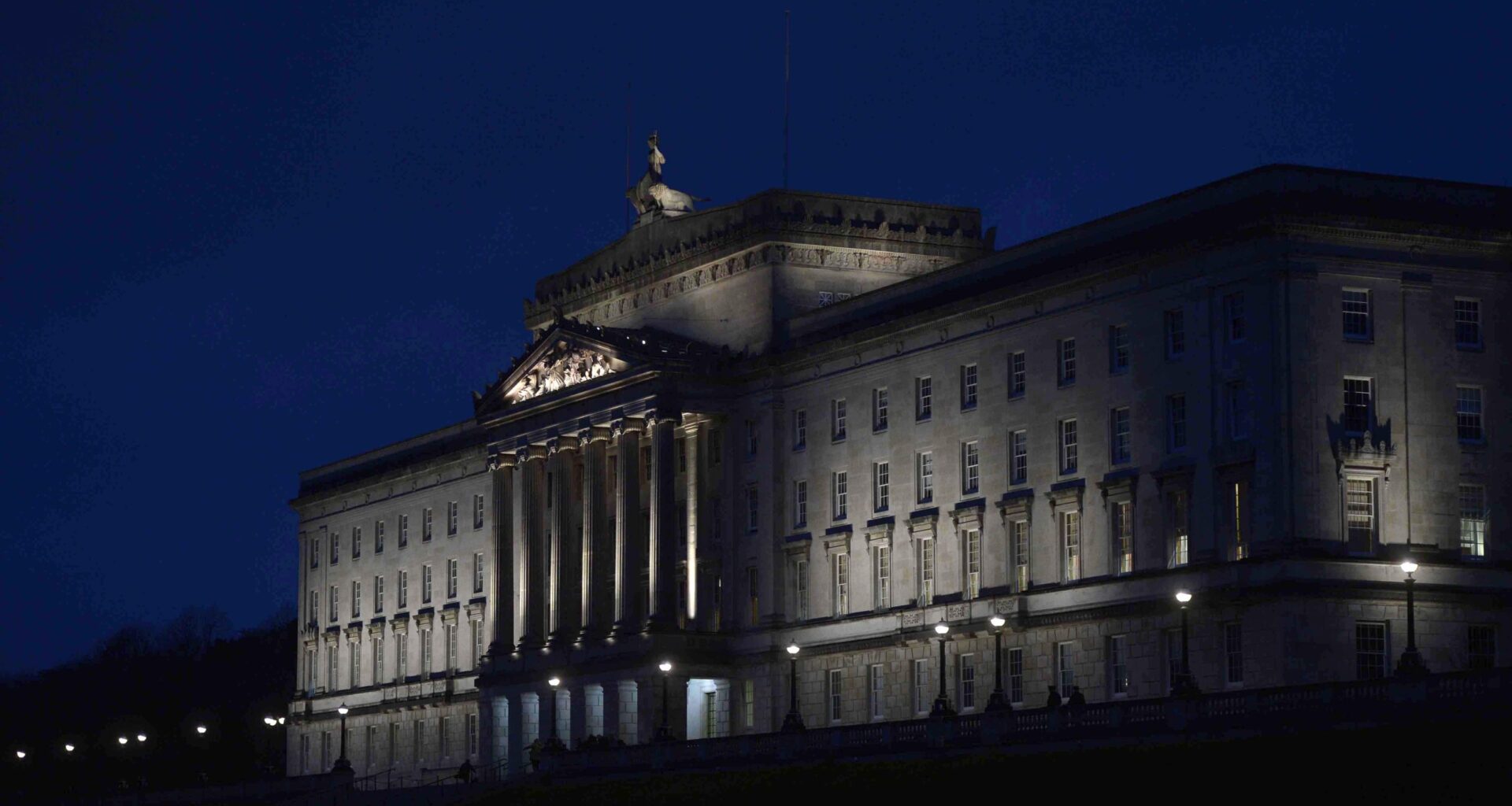A cornerstone of the EU-UK Brexit agreement will survive at least four more years following a controversial vote in the Northern Ireland Assembly on Tuesday (10 December) night.
The vote concluded a more than six-hour heated debate at Stormont in Belfast, resulting in a majority of 48 to 36 approving the deal, but unionists argued the decision should not pass without broader cross-community support.
“For the very first time since the Belfast/Good Friday Agreement, a key decision, a key vote in this house that will affect everyone in Northern Ireland, will not require cross-community support in the assembly,” said Deputy First Minister Emma Little-Pengelly of the Democratic Unionist Party (DUP), the second-largest party in the assembly and largest unionist faction.
“This, quite frankly, is a rigged vote,” she said during the debate.
The assembly’s decision means crucial parts of the 2023 Windsor Framework, which governs Northern Ireland’s access to the British and European markets, will remain in place until Stormont votes again in 2028. Though the deal was already in place, this was the assembly’s first opportunity to vote on it.
Opinions on the deal are split along Northern Ireland’s old political lines. Unionists, who want Northern Ireland to remain in the United Kingdom, voted against. Nationalists, who seek Irish unification, voted in favour, alongside the liberal Alliance party, which describes itself as neither unionist nor nationalist.
‘An illusion of democracy’
The 1998 Belfast Agreement – better known as the Good Friday Agreement – requires unionists and nationalists to share power. While it permits simple majorities for most day-to-day matters, it allows 30 members of the 90-member assembly to force a cross-community vote on especially contentious decisions.
But the Brexit deal circumvents that provision, infuriating unionists, who until 2017 had a majority in the assembly.
On Tuesday night, 36 unionists were outvoted by 30 nationalists and 17 Alliance members. Gerry Carroll of the far-left People Before Profit, who is also not registered as unionist or nationalist, also voted in favour.
No unionists voted in favour, and no one from the other groups voted against it. Five nationalists and the unionist speaker, expected to remain neutral, abstained.
“Today’s vote is an illusion of democracy: a rigged vote in which the European Union already know the outcome,” said the DUP’s Jonathan Buckley in a speech that lasted more than an hour.
The DUP opposed the Good Friday Agreement, but the more moderate and then-larger Ulster Unionist Party (UUP) supported it.
The 1998 peace deal also had the support of the two main nationalist parties: the nonviolent Social Democratic and Labour Party (SDLP) and Sinn Féin, which was the political wing of the now-inactive Provisional Irish Republican Army, a terrorist group.
‘It wouldn’t have happened without Brexit’
The parties’ positions in the 2016 Brexit referendum mirrored their stances on the Good Friday Agreement 18 years earlier. The DUP campaigned for the UK to leave the EU, but the UUP, SDLP and Sinn Féin wanted it to remain. Most voters in Northern Ireland voted to remain in the EU.
After the referendum, the EU and the UK spent years negotiating a solution to keep Northern Ireland in the EU’s single market with the rest of Ireland.
The 2023 Windsor Framework amended the Northern Ireland Protocol, agreed in 2020, in an attempt to address unionist concerns about access to the British market.
However, unionists argue that the Windsor Framework still creates trade barriers between Great Britain and Northern Ireland, constituting the United Kingdom.
“Those today who say they don’t consent to the protocol seem to forget the fact that the North never consented to Brexit in the first place,” said Philip McGuigan of Sinn Féin, the largest party in the assembly.
SDLP leader Matthew O’Toole accused unionists of talking about the Windsor Framework “as if it fell from the sky as if Brexit had nothing to do with it—it wouldn’t have happened without Brexit.”
In his lengthy speech, Buckley highlighted threats to the import of dead fishing bait, seeds, fabrics, live horses, veterinary medicines and pushed wheelchairs from Great Britain. He also said Northern Irish farmers may soon be required to use different feed composition for hens.
McGuigan said the deal’s provisions offer “protections from Brexit’s worst excesses, as they allow for dual market access to both the EU and to the British market.”
‘Dual market access is a myth’
But Buckley argued that “dual market access is a myth because to achieve dual market access, you have to have an equal playing field. There is no such equal playing field.”
Steve Aiken, leader of the UUP, argued that the trade rules were not necessary to protect the EU’s single market. He contrasted the UK to the South American free trade region of Mercosur, with which the EU recently finalised the largest trade agreement in its history.
“There is still not one example of the single market being put at risk by UK goods,” said Aiken. But the EU-Mercosur deal poses “a very well real threat to contamination of our – and by extension the UK – market by other imports coming from outside even the European Union.”
“The Mercosur agreement is going to have a huge impact on farming on this island,” he said.
The lack of cross-community support means that the British government will have to commission an independent legal review on the functioning of the Windsor Framework. A broader agreement would also have allowed Northern Ireland’s consent to the deal to stand for eight years rather than four.
If the assembly votes against the deal in 2028, there would be a delay of a couple of years before the Windsor Framework ceases to apply, forcing the UK and the EU to come up with a new solution.
[Edited by Alice Taylor-Braçe]
